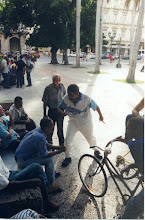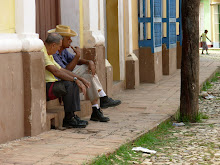
If there’s one thing that’s clear about the changes taking place in
One example came last week. Salary ceilings are being lifted and workers are going to be able to earn more, according to their output. But how much more? In Cuban pesos or in hard currency? And what will the incentive structure be? In time, we’ll find out.
And then last Friday came news of a change in housing policy.
Maybe it’s the start of a broader reform that will someday allow Cubans who hold title to their homes to price and sell them. According to AP, two housing officials said that more changes in housing policies are to come.
But the action taken last Friday was narrow. It affects Cubans who are by law entitled to gain title to their homes after paying rent for 20 years. The change streamlines the bureaucratic process for acquiring title.
It is not, as I thought when I first heard the report, a decision to allow Cubans who have rented properties – and had no prospect of owning them – to become owners. That decision was made long ago. What changed is the procedure by which certain renters can become owners.
This new procedure is related to a 1987 resolution and a 1988 law that govern housing that is “vinculada,” i.e. linked to a government entity that rents housing to its workers. Examples include members of the military, sugar workers, and others.
That law and resolution established that after 20 years of paying rent, the workers are entitled to own the property. Since the entitlement was established 20 years ago, large numbers of Cubans are now at the point where they can claim ownership.
The new procedure sets forth how the workers’ “right to transfer” – or that of their heirs – is to be exercised. Workers can start the process without waiting for the employer to start it, the municipal housing office (rather than a provincial or national bureaucracy) can carry it out, and once a document is delivered indicating that the process is complete, that document serves as title to the property.
With title, Cubans can bequeath property to heirs or seek a license to rent it in national or convertible currency. They cannot sell it, but in fact there is a real estate market of sorts. Legally, they trade properties, and under the table they transfer money that makes up for the difference in value.
The decision, a resolution issued by the housing institute and published in the Official Gazette, is here. Reuters coverage here. AP coverage here. (Correction: I'm told that family doctors' housing is not in the category covered by the resolution, and deleted that from the post.)





1 comment:
There is not such a thing. What we see is a number of low impact meassures, basically administrative ones.
There is such a mess in Vivienda and for those who doesnt know anything about Cuban Housing Regulations Ley General de la Vivienda, and you see the big headlines , it sounds like the hell of a big change.
Post a Comment